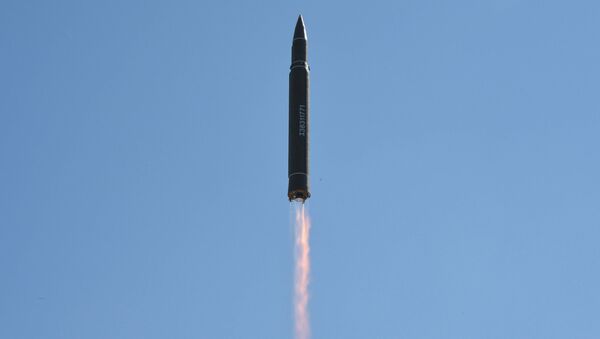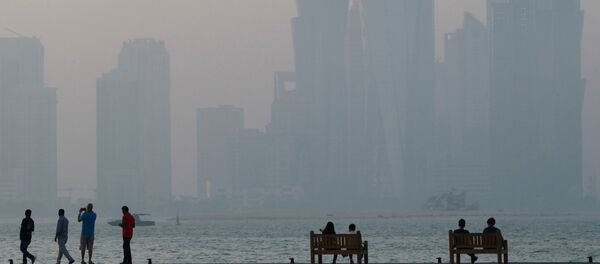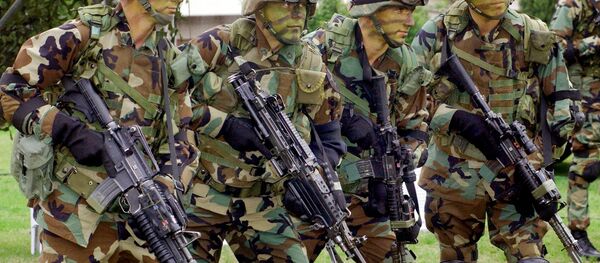Middle East
Opening talks with Arab League Secretary-General Ahmed Aboul-Gheit this morning, Lavrov said that Russia is "interested in this role being further strengthened, and that the League's activities are truly inclusive in the participation of all Arab states without exception."
Russia supports all initiatives aimed at a thaw in the Persian Gulf, Lavrov said, adding that President Vladimir Putin discussed the Qatar crisis with both the Saudi side and Doha.
"If all the countries involved believe that we can do something more in order to help overcome differences and resolve concerns, we will be ready to respond to a respective address," Lavrov added.
The Syrian crisis and de-escalation zones in particular were also discussed with Russia convincing the Arab League that the zones would lead to national reconciliation, not division, Ahmed Aboul-Gheit said.
Lavrov said he sees no links between the Astana talks between the Syrian armed opposition and Damascus and the battle for Raqqa.
"We hope that there will be real progress with regard to the determination of specific and geographic parameters related to the operation of de-escalation zones," Lavrov told reporters during talks with the Arab League secretary general.
North Korea
When asked whether Russia knows which type of missile that was launched by North Korea on Tuesday, Lavrov confirmed the information stated by the Russian Defense Ministry.
North Korea announced Tuesday that it had successfully launched its first intercontinental ballistic missile, the Hwasong-14, at 00:30 GMT. It said the missile traveled 580 miles and reached an altitude of 1,740 miles during its 39-minute flight before "accurately hitting the target waters in the open sea" in the Sea of Japan.
While the US believes that North Korea has successfully launched an ICBM for the first time, the Russian Defense Ministry said that the missile's type was medium-range, not intercontinental.
Lavrov added that the aim to denuclearize the Korean peninsula "shouldn't be used as a pretext for regime change in the DPRK."
"Any attempts to justify a military decision, using as a pretext [UN] Security Council resolutions, are unacceptable and will lead to unpredictable consequences in this region, which is adjacent to both the Russian Federation and the People's Republic of China. Attempts to economically strangle the DPRK are unacceptable too."
On Tuesday, Russian and Chinese foreign ministries released a joint statement calling on Pyongyang to declare a moratorium on nuclear tests and urging the US and South Korea to refrain from joint drills in order to avoid further escalation of the situation on the peninsula.
North Korea carried out several missile tests in the past two months, possibly testing a ICBM rocket engine on June 23 and missiles of various ranges on June 08, May 29 and May 21.
Over the years, the United Nations Security Council has issued numerous resolutions concerning North Korea. The June 02 resolution condemned nuclear weapons and ballistic missile development activities, while the March 23 resolution strengthened sanctions against Pyongyang.
On Tuesday, Russian and Chinese foreign ministries released a joint statement calling on Pyongyang to declare a moratorium on nuclear tests and urging the US and South Korea to refrain from joint drills in order to avoid further escalation of the situation on the peninsula.



